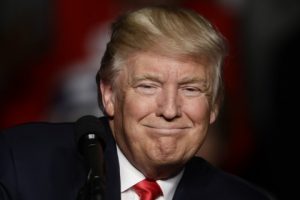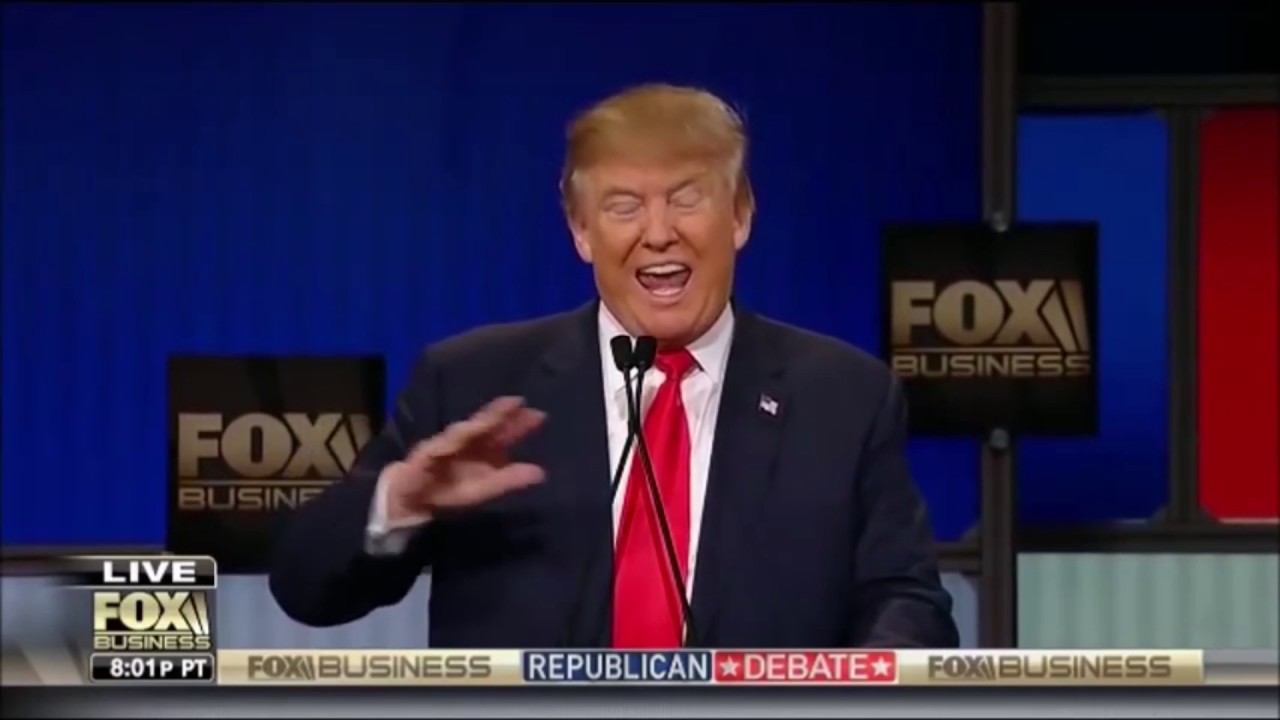 By Paul Waldman
By Paul Waldman Donald Trump will take the Oval Office with more potential financial conflicts of interest than any president in American history, yet no president in modern times has refused more steadfastly to reveal details his finances. After the election, Trump promised to to hold a press conference in early December at which he’d answer questions about how he will ensure that his widespread holdings will not provide opportunities for graft or the incentive to shape American policy toward his own financial gain.
After all, as he said in January, “My whole life I’ve been greedy, greedy, greedy. I’ve grabbed all the money I could get. I’m so greedy.” Yet when the date of that press conference came and went, he and his advisers said that he was too busy to do it, and it would happen some time in January.
You’ll notice that she gave herself an excuse if it doesn’t end up happening, by claiming that the decision is up to “the lawyers and the compliance officers” and not Trump himself. Personally, I’d be shocked if this press conference ever happens. The idea that Donald Trump will voluntarily answer questions about his finances is almost preposterous. He’ll find some other excuse — it’s so close to the inauguration, we’re so busy! — and just hope that everyone forgets about it, which they well might.
But let’s assume for the moment that there actually will be such a press conference, on January 11 or at some other time. Here are some questions that those fortunate enough to be called on might consider asking the president-elect:
- Unlike every presidential nominee in the last four decades, you refused to disclose your tax returns, claiming that you couldn’t do it because you were being audited by the IRS. In truth, the audit didn’t prevent you from making the returns public, but in any case, can you tell us when that audit will be complete? And will you pledge right now in front of the cameras that as soon as it is, the public will finally get to see your tax returns?
- Just after the election, you settled the Trump University fraud lawsuit by agreeing to pay $25 million to the people who were scammed out of their savings. Yet you personally and your company are still involved in approximately 75 lawsuits as either a plaintiff or a defendant, a small portion of the 4,000 lawsuits to which you’ve been a party over the course of your career. Will you be settling these as well?
- You’ve said that “No new deals will be done during my term(s) in office.” Can you be more specific? Does that mean that when a developer proposes to enter a licensing agreement with the Trump Organization, they will be told no, because the Organization will be pursuing no new projects until you leave office? For instance, Dubai billionaire Hussein Sajwani, on whom you lavished praise at your New Year’s Eve party, has said he is hoping to do more projects with you and your children. Will he be turned away?
- Even under your existing contracts, a variety of foreign interests, many with close ties to their governments, will be sending money to the Trump Organization on an ongoing basis, particularly in licensing fees. Some of these projects are in their early stages and require the cooperation of those governments on matters like permits and zoning. Yet you will be setting policy for the United States as it relates to those governments. Even if you aren’t involved in the day-to-day operations of the Trump Organization, you still have a financial interest in those projects, as both you and those governments are well aware. Does the public have anything other than your word to assure them that your decisions as president won’t be guided by what will make you the most money?
- You’ve said you will transfer control of the Trump Organization to your two sons. But even if you aren’t running it while you’re president, we will still need to understand the ownership structure, so we know whether you’re getting money from it — or how much you’re getting — during your presidency. So for clarity’s sake, what will be the ownership structure of the Trump Organization? Will you own 100 percent of it, or will ownership be shared with your children?
- You currently owe at least $713 million to banks, which does not include the billions of dollars in debt owed by projects of which you are a partner. Your largest single creditor is Deutsche Bank, to whom you owe $364 million. Deutsche Bank just agreed with the Justice Department to pay a staggering $7.2 billion in fines and restitution for its fraudulent activities related to the mortgage crisis. How can we be sure that your Justice Department won’t be affected by your own financial interests when it comes to future investigations of the banking industry?
- Your hotel in Washington has been encouraging foreign governments to patronize it, with the implication that doing so will curry favor with you. As one diplomat said, “Why wouldn’t I stay at his hotel blocks from the White House, so I can tell the new president, ‘I love your new hotel!’ Isn’t it rude to come to his city and say, ‘I am staying at your competitor?’” This seems like about as clear a violation of the Constitution’s emoluments clause as one could imagine, since it means that foreign governments are paying you in order to stay in your good graces. What do you intend to do about that?
- The property of that hotel is owned by the U.S. government, and on the day you take office, you will be in violation of the lease you signed, which specified that no elected official could be an owner of the hotel. In addition, you will in effect be your own landlord, hiring the head of the General Services Administration, which oversees federal government property. The GSA will have to periodically renegotiate the terms of that lease, and the idea that it would aggressively represent the interests of the taxpayers against the president is questionable, to say the least. Will you be selling or transferring your interest in the hotel?
- You have your name plastered on properties all over the world, all of which are now potential targets for terrorism. Will the American taxpayer be asked to foot the bill for increased security at those hotels, apartment buildings, and golf courses? If one of them should be subject to an attack, how can we be sure that your reaction will be determined by what’s in the best interests of the United States and not your own personal anger?
- When Congressional Republicans voted to gut the Office of Congressional Ethics, you tweeted that they shouldn’t have done so but only because there are other things to work on, and you called the OCE “unfair.” In the wake of a public outcry they have now reversed themselves. But between this Congress, the collection of billionaires and Wall Streeters in your cabinet, and your own conflicts of interest and refusal to release your tax returns, this is shaping up to be an administration with less transparency and more opportunities for self-dealing than any in memory. What can you tell the American people to assure them that the Trump years will be something other than an orgy of corruption?
I said, I doubt that Trump is ever going to have that press conference, precisely because he’d have to answer questions like these. But we’ll see if I’m wrong.





